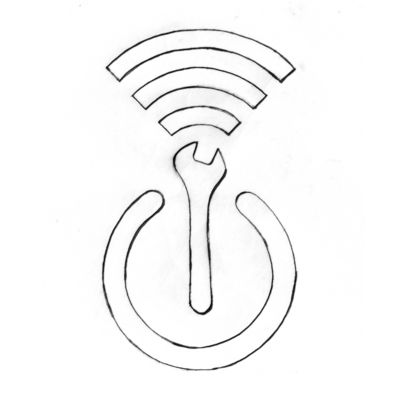A bi-weekly talk show by The Restart Project, plus a monthly documentary series produced by brilliant podcaster Dave Pickering, based on fixing triumphs, heartbreaks and wisdom shared at our community repair events – called Restart Parties – here in London. We go into real depth about good and bad design, obstacles to repair of electronics, emotional aspects of ownership, environmentally irresponsible business models, and the “end of life” of our gadgets. This podcast is for you if you'd like to fix your relationship with electronics. Let’s rethink, restart.
https://therestartproject.org/podcast/
Restart Radio: Exploring personal data at the Glass Room
[soundcloud url="api.soundcloud.com/tracks/365726186" params="color=ff5500&inverse=false&auto_play=false&show_user=true" width="100%" height="20" iframe="true" /]
Download: 41 MB
Subscribe:
RSS |
SoundCloud |
iTunes
You can tell a lot about a person from their data: from the places they go, to the length of their work-out, to their preferred breakfast cereal. And with this amount of private information stored inside an iPhone or a computer, it isn’t surprising that people are unwilling to hand them over to a recycler once they’re no longer in-use. But is this a valid concern, considering that we hand this information over willfully, all the time, to large corporations for whom it is a valuable currency?
A study by REPIC, the UK’s biggest producer compliance scheme for e-waste, showed that 65% of users of electronic items have concerns about their data being breached. Of these, more than a quarter didn’t know how to delete their data, while a third didn’t think they had to. Evidently, education surrounding personal data and how to manage it hasn’t caught up to the large role it plays in the lives of most people.
This isn’t just problematic for its implications to e-waste. It also raises the question of whether we really are willing participants in the Big Data economy.
Today, Ugo and Neil talk about the ethics of personal data collection with reference to The Glass Room: a pop-up interactive exhibition that we visited last month in London, produced by Mozilla and curated by Tactical Tech. The Glass Room aims to educate people about how their data is being monitored through location services, search histories, health information from synced products like Fitbit trackers, likes, messages, and even the exact amount of time in which your attention span is held by a certain article. While Glass Room is now closed in London, their website offers access to a wide selection of the materials presented in the exhibition, including inspiring videos and installations, challenging our understanding of how much we’re being tracked and the extent to which privacy is under threat.
Image source: https://theglassroom.org/exhibit/But why should you care? Even if you are not concerned with ways in which your data (or the profit generated by it) is used by corporations such as Alphabet – the multinational conglomerate that claims Google as one of its subsidiaries – then the thought of how it might be used illegally by those who successfully breach these enormous stores of data is a terrifying enough thought on its own.
There are ways to take back some control over the information you hand out. Experts at the Glass Room’s ‘Ingenious bar’ handed out Data Detox Kits, which spell out an 8-day plan to help users seek to understand and reclaim the online portrait built up from their data. Ugo and Neil brainstorm some of their own techniques. Duck Duck Go is a search engine which does not track users, and Firefox Focus in a new version of Mozilla’s browser for mobile phones, which makes it very easy to delete traces of what you have searched, while taking little memory. If you do need to continue using services such as Google and Facebook, check out your privacy settings so you know what information is being shared.
With the rise of the Internet of Things, the environmental and social cost of Big Data is only going to grow. If we are to have a truly democratic society founded on trust and openness, the circumstances surrounding collection and usage of personal data need to be made far more transparent.
Links:
-
- CIWM – REPIC study on data security fears and recycling
- The Glass Room
- Data Detox Kit – Online Version
- Joana Moll – The Texas Border
- CHOICE Australia – Actor hired to read all of Amazon’s Terms and Conditions
- Duck Duck Go
- Firefox Focus
The post Restart Radio: Exploring personal data at the Glass Room appeared first on The Restart Project.
